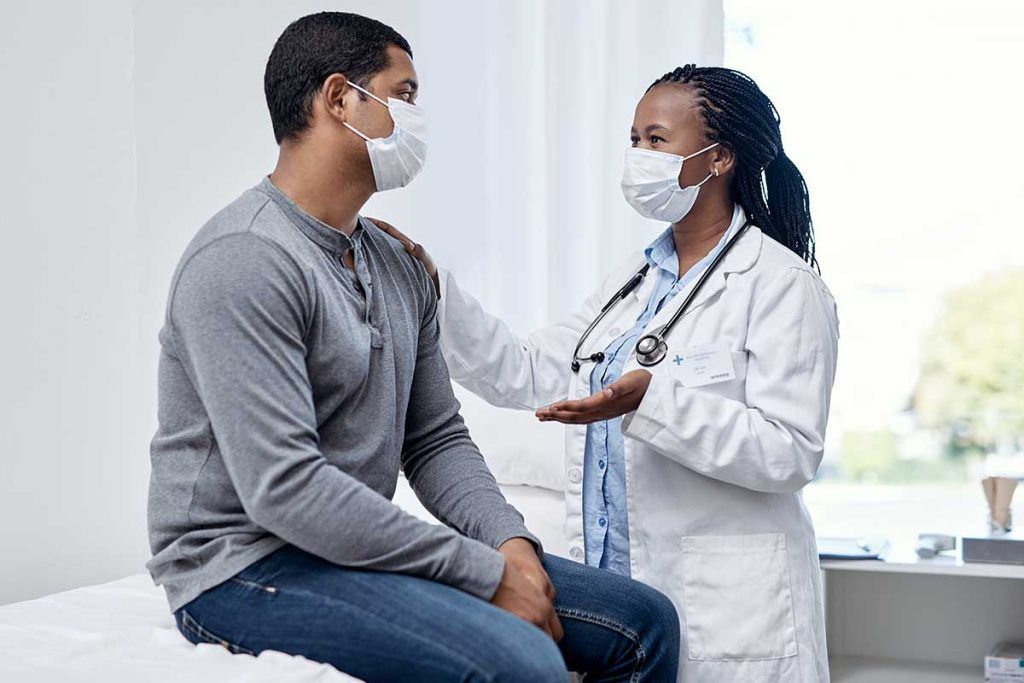Being a young adult is stressful. Being a young male adult comes with its own peculiar struggles. Adulthood means working long hours to sustain yourself and having little time for other things. This was not what many people expected but it is what it is.
Amidst all these, it is easy to lose sight of your well-being, ignore certain symptoms until they have worsened severely. As you pursue your career goals in your 20s to 40s, you should make wellness one of your priorities.
It has been proven that more men than women are likely to avoid their doctors. Men tend to downplay their symptoms and put off hospital visits until they have a major scare. This attitude contributes to men\’s lower life expectancy. You can break this trend by starting with yourself.
There is also a dangerous misconception that young people generally cannot be affected by certain conditions like hypertension, cancers, chronic liver disease and so on. While some diseases may have been known to be less common in the young demographic, they are not impossible and should be prevented and looked out for.
Five health tests young men should do
They say prevention is better than cure. To prevent an ailment, it should be detected at an early stage. For you to detect a disease, you have to test for it. Here are five recommended health check-ups to help you.
- STI test: This includes HIV, gonorrhea, chlamydia, hepatitis B, syphilis tests among others. As a sexually active young man, these are checkup you need to routinely do. HIV has no cure yet but it can be effectively managed with drug therapy to prevent it from progressing to AIDS. Hepatitis B (HBV) is a viral infection that affects the liver and it can be sexually transmitted. HBV has been linked to liver cancer; if the virus stays long enough in the body undiagnosed and untreated, it could transform into a cancer. If you test negative for HBV, go take the vaccine and eliminate any chances of ever contracting it. Syphilis is totally treatable, provided it is diagnosed early. Otherwise, it could trigger some serious neurological complications after many years.
Want to take an STD test? Book for your test with healthtracka below.
- Blood pressure checks: High blood pressure is when the force of blood flow in the blood vessels is too high. The condition puts the heart under stress to pump blood and causes hardening of the blood vessels wall. Numerically, it is defined as blood pressure equal to or greater than 130/90. Either one or both of the numbers going above the limit is enough to be a problem. Hypertension usually does not show any symptoms. It is silent in its onset and progression. In many cases, people are unaware of hypertension until complications like stroke occur or even a hypertensive emergency. There is no risk associated with the test. Make it a point to check your blood pressure frequently.
- Kidney function test: This is an umbrella term for the series of tests used to check the quality of kidney function. Abnormal kidney function may present some symptoms like painful or difficult urination, frequent urine urge with change in urine output, blood in urine, accumulation of fluids in the body leading to swollen limbs. These symptoms will be confirmed by kidney tests your doctor will order. They measure specific features or components which may have been altered. For example, a Glomerular Filtration Rate (GFR) estimates how well and rapidly the kidney clears out waste. Other kidney function tests are urinalysis, blood urea nitrogen tests and serum creatinine tests.
- Blood sugar test: This is a procedure that investigates the blood for glucose level. Your doctor will take a blood sample to test for diabetes using either Fasting Blood Sugar (FBS) test or glycated hemoglobin test which is otherwise called HBA1C test. As its name implies, fasting blood glucose requires you to have fasted 10-12 hours. The range of FBS is 70 to 99 mg/dL (3.9 to 5.5 mmol/L) while that of the HBA1C test is 4–5.6%. Anything beyond the respective upper limits may indicate diabetes or pre-diabetes.
- Full lipid profile: This test is used to assess any abnormality in quantity and quality of fat and cholesterol in the body. This test is a useful tool in determining your risk of developing fat plaques in your arteries. These plaques are dangerous because with time, they reduce the diameter of the arteries. People with high cholesterol have higher chances of suffering from cardiovascular problems. It is also used to diagnose certain genetic diseases that you may not be aware of. Your blood will be drawn for this test but there is no health implication. Although the frequency of this checkup would be determined by your doctor, certain categories of people are instructed to test regularly. They include people with a family history of heart attacks, overweight people, diabetic patients, and smokers.
In addition to these tests, it is advisable to live right and make healthy choices. This is because unhealthy choices may enable the manifestation of some chronic conditions.
For starters, the kind of food you eat determines a lot. Cutting down excessive carbohydrates and bad fat (omega-6) can significantly reduce your chances of developing diabetes and heart diseases.
Invest in your fitness by dedicating some time to exercising regularly. Cut down on smoking and alcohol drinking, especially if you are at high risk for certain cancers based on family history. Excessive alcohol consumption and smoking are two highly common direct or indirect causal factors of many conditions.
All these together with regular medical checkups will improve your health status and outcome. No single one of them can guarantee you an optimal quality of life. You cannot be having unprotected sex wantonly and expect that periodic STI test results will come out negative. Ensure to take necessary preventive measures whilst submitting yourself for tests at regular intervals recommended by your doctor.
Your body and health you will have in your later years is only as good as the health practices you adopt in your youth. Practice proper ones and you will be better for it.




